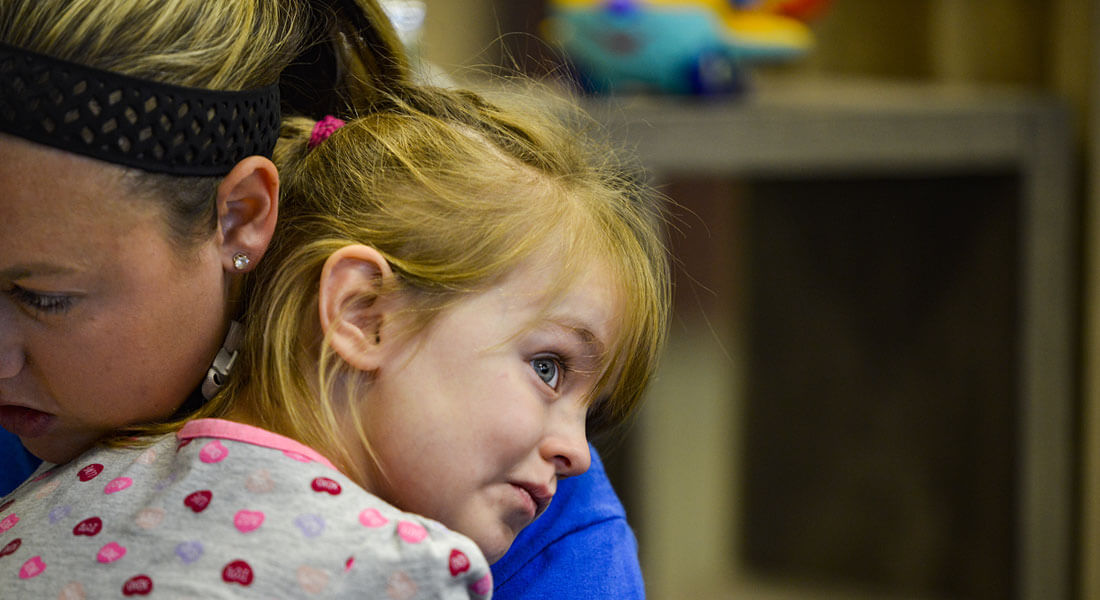Help, My Family Doesn't Accept My Child Has Autism
May 25, 2018
May 25, 2018

While living with autism can be a beautiful thing, it’s no secret that children on the spectrum have various struggles to overcome throughout life. Nor is it a surprise that parents of those kids have their own set of challenges to conquer, from learning to cope with communication breakdowns to finding the best therapy options, then financial questions and worrying about what the future has in store for their kiddos. There is one issue, however, that seems to come as a shock for many parents in our Hopebridge community: a lack of autism ‘acceptance’ from other family members.
We’ve been told this is can be the most difficult part of autism parents have to deal with, mainly because of the emotional toll it takes on them. They expect to see judgmental looks out in public, but not in their homes. Even tougher, this often comes when they likely need the most support, and sometimes after these parents have already battled their own skepticism or grief surrounding the diagnosis.
Do any of these statements sound familiar to you?

For one Hopebridge mother, Melissa, it was, “he just has nothing to say,” and “are you sure he can hear you?” Early in her son’s life, she had concerns, but believed she was paranoid since others pressured her not to acknowledge the signs of autism. Even after Jonathan’s diagnosis at 3 years old (which also followed years of therapy), she feels as though she continues to be blamed for his ‘differences.’
Contact us and we can help you navigate this journey to make the best life possible for you and your child.
“Family is supposed to be there to help and support, and instead, they look at me like I’m making it up,” said Melissa, who experiences both angles from different family members. “Some understand he has different needs and try to pick up and read about it, which helps. Others don’t understand Jonathan, nor that a lot of his actions are likely due to autism. They don’t understand because they don’t want to, and they don’t like to talk about it.”
The reasons run the gamut. Many are not rooted in negativity and come from a lack of awareness, misunderstanding and/or stereotyping. The stereotypes can go many different directions, ranging from comparisons to Rainman to believing ASD equals non-verbal. Sometimes people mistake intelligence for a sign that there is nothing diagnostically at work. They don’t understand that just because someone is extremely brilliant, he or she may still benefit from autism services.
For others, it is a fear that the child won’t ‘fit in’ due to the label, or sadly, feelings of shame; worrying that the diagnosis means something about themselves, personally. And still, others see it as an ‘excuse for bad behavior.’

Parenting a child with autism is has a unique set of challenges and we hope families can be there for support and acceptance.
No matter what the reason, it can be hurtful to parents. They want their children to be accepted in schools, by their peers and the general community, and having to worry about recognition within their own families is an added stressor.
Grandparents, aunts, cousins and other extended family members can be valuable to have in your child’s life – and yours! – so it is understandable that you want to want to be able to share all aspects of it with them.
While every relationship is different and you need to judge what makes sense for your scenario, here are a few tips to serve as a bridge for getting your family on board.
Parenting a child with autism is rarely easy and we hope family can be there for you to make it better. Either way, we are here for you and so are many other parents. If you have experienced similar challenges and have questions or advice for other families, please visit the Hopebridge Facebook page to join the conversation.
Autism Therapy
September 19, 2018
What Does a Day at Hopebridge Look Like for your Kiddo? - Ask Kim Video Series
Autism Therapy
July 17, 2018
What is Pivotal Response Training? Learn from a Hopebridge BCBA Series
Autism Therapy
October 31, 2019
Kobe - Taking on New Experiences with Help from ABA Therapy